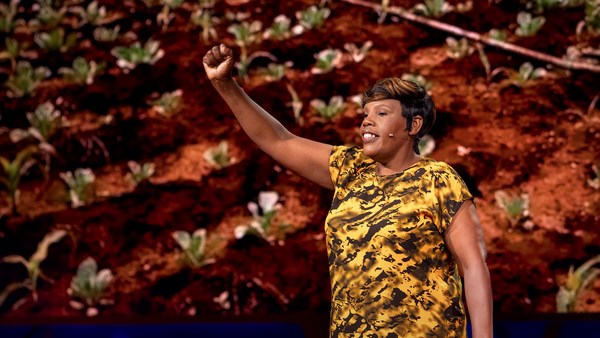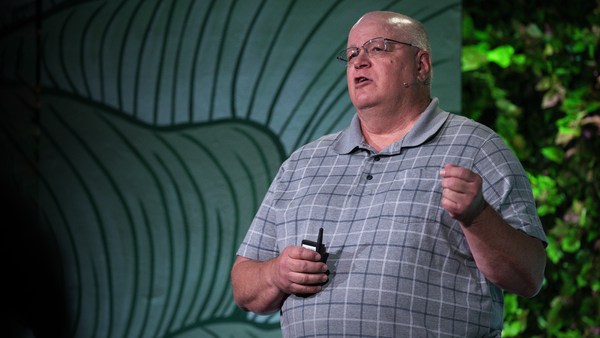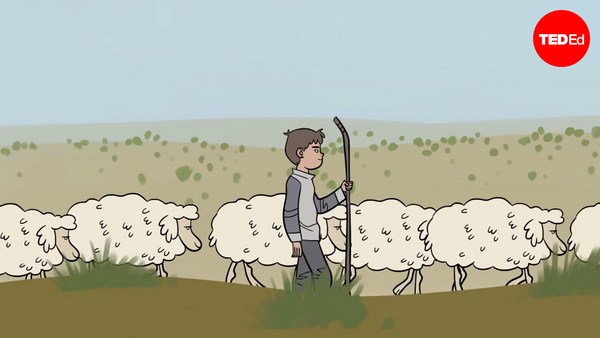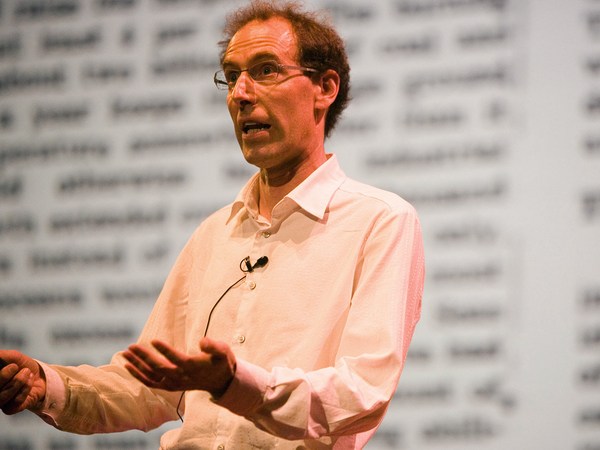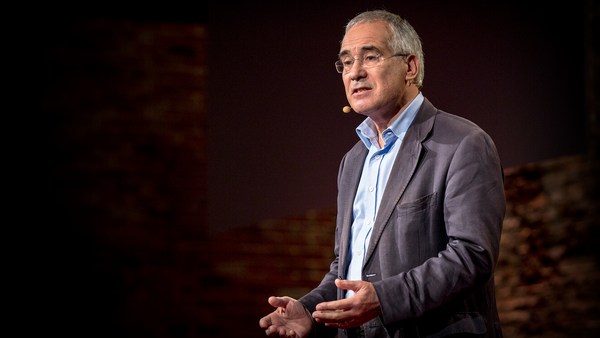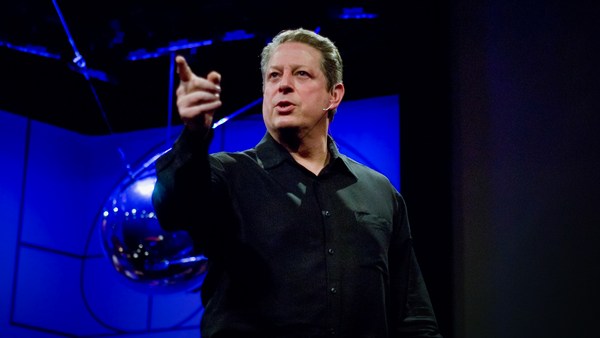I'm a climate justice advocate, and people often ask me, "Harjeet, how do you manage to stay positive and smile with all the doom and gloom around us?" Trust me, I do get angry and there's plenty of evidence online.
(Laughter)
There is no doubt that we are living through a human-caused climate crisis. But I have immense faith in humanity and our collective superpower, which is our ability to adapt. We have adapted for centuries, except the scale and speed that are required now are unprecedented, and each one of us has to play our part.
Let me share about Kamlesh Kushwaha's superpower. He's an organic farmer from a drought-prone Bundelkhand region in India, where people are dependent on rain fed agriculture and traditional wells. Having worked with Kamlesh since 2017 through my organization, Satat Sampada, I can tell you he's not a conventional farmer. He's someone who thinks, who plans, who knows how to adapt. Life could have been far worse for him during the deadly 2024 heatwave, but his ability to choose crops wisely and adjust the timings as the weather changes, and installing a solar-powered irrigation pump with the government support, has been a game changer. He has been able to adapt much better than many farmers, who lost close to 50 percent of their production. Kamlesh's story is not just about survival, it's about the human spirit. It's about power of people to make a difference if they get the right kind of support and in a timely manner.
We know that climate impacts are increasing and we see devastation all around us, which means that we have to adapt. So what is adaptation? Adaptation means adjusting and being ready for a new climate reality, which is uncertain and unpredictable. Let me make it simple for you. Imagine you are stepping out of home wearing a T-shirt, carrying a water bottle for the heat, but you're also carrying an umbrella for the unexpected rain and a jacket for the evening chill. It may look a bit silly, but then you are ready for every situation. That's personal adaptation. Countries, of course, require much more than a backpack. Let me share a mantra with you, which is the crux of my 25 years of experience working with communities, governments and also at the global policy-making level. The mantra is that there can be no adaptation without development.
Let's unpack. Take two coastal nations. One, the Netherlands, where centuries of investment and smart planning have created a landscape that can coexist with the sea. The other, Bangladesh, where millions of people live on the front lines of climate change where floods, droughts, cyclones and rising seas are devastating their homes, farms and livelihoods. This isn't just about geography, it's about access to resources. Netherlands, for instance, amassed massive wealth largely through its colonial rule. Bangladesh, on the other hand, has been a victim of such historical injustices. Economist Utsa Patnaik's research, published by Columbia University Press, reveals how the British took approximately 45 trillion dollars from the Indian subcontinent between 1765 to 1938. Now imagine the scale of the wealth that was taken from the subcontinent, which pushed the region into deep poverty, limiting the capacity of nations like Bangladesh to invest into resilient infrastructure and institutions that are required now to deal with the climate impacts. Like Bangladesh, we also see countries like Mozambique, which are facing devastating climate impacts. They are forced to take more and more loans and the result is they are stuck and trapped in a vicious cycle of debt and poverty. Lesson: there can be no adaptation without development.
Let's also not think that only low-income countries are facing climate impacts. Remember the floods in Germany a few years ago? Wildfires in Australia and Canada, even now? And the super storms that are hitting the US far more frequently. All these are challenging and overwhelming the capacity of these nations who have robust power grids, emergency services, warning systems. But the fact is that they are losing billions of dollars. You must be asking why? Why them? Because they never anticipated that the climate crisis is also going to hit them. I've been following negotiations for years. They always thought it's a developing-country issue. On the contrary, they kept increasing the fossil fuel extraction, which we all know is the cause of the climate crisis. I'm talking about coal, oil and gas. Lesson: if you don’t adapt, climate impacts are going to erode years of development gains. And more fossil fuels means more climate impacts, leading to more losses and damages. Now, that was the heavy part.
(Laughter)
Let's talk about some good news. Studies from the Global Commission on Adaptation and the World Resources Institute have shown that for every dollar invested in adaptation, we can save four to more than 10 dollars that are later spent on disaster response. That's an amazing return on investment, right? So there's a very strong economic case to invest in adaptation now for a safer future.
Let's take some more examples from the grassroots, cities and at the policy level. Let me take you back to Bangladesh, where we see that farms are flooded for months. What does that mean? No crops, no food. But I have seen it myself, how many farmers in Bangladesh have created these floating farms. Have you heard of that? They use a local bamboo material with rich beds of soil and compost. So when flood waters rise, these farms float, lifting the produce safely above the water. How brilliant is that? So your farms learn to swim. There are also examples of cities where you see that Kuala Lumpur in Malaysia, Shanghai and Tianjin in China and Singapore have decided to become sponge cities. Instead of fighting excess water, they are working to make friends with it. What does that mean? It means more green spaces, like porous pavements that can absorb rainwater, more parks, more urban wetlands and more rooftop gardens. So what's the impact? They are not only prepared to fight floods much better. These aspects also clean the air naturally, they also cool down the neighborhoods, making the city far more pleasant and healthy for everyone.
Now let's also look at the policy level. One of the largest climate-adaptation initiatives in Africa, Productive Safety Net Programme in Ethiopia, doesn't just provide food aid during droughts, but engages millions of people to create soil and water conservation structures, small irrigation projects and also revive degraded lands. Now, that's a masterpiece of common sense. You are using the resource which is there for immediate relief to invest into long-term adaptation and resilience.
But that would require hundreds of billions of dollars. So what you and I can do? Two things. One, we must make sure that all countries have resilience policies and practices so that we are able to adapt. And we also need to move away from fossil fuels. And that would require a bolder initiative so that we can all make a transition which is just and equitable. And for that, we need a fossil fuel treaty.
(Applause)
And we also need to make sure that developing countries, who do not have resources, are supported by the wealthy nations who are largely responsible for the climate crisis. They have an outsized responsibility.
Second, beyond governments, you can use your adaptation superpower to make a difference, and you don't need to be a climatologist for that. If you are an educator, don't just teach about climate change, but also prepare and inspire the next generation to act. If you are an engineer, you can be the Tony Stark of adaptation. Innovate, create designs and technology and share them with people who need to manage climate risks. If you are an artist or a content creator, simplify complex data and concepts. Write a poem, sing a song. Reach people's hearts and minds so that they can learn about resilience with joy and hope.
Let us start accepting the reality that climate change is upon us, and it has brought uncertainty and unpredictability on a daily basis. We need to apply a climate lens to every activity so that we can make adaptation and development go hand in hand. And trust me, collectively, we can build a safer future by spreading solutions and hope everywhere.
Thank you.
(Applause)
